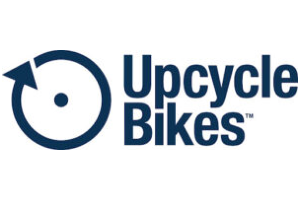By: Andrew Fathman
Over the past few seasons, I have had the privilege to compete in multisport races on every scale possible. From a local race of 100 to an international championship with 4,000 other triathletes. With the perspective provided by these opportunities, I have asked myself the question of which format I prefer? But maybe that’s not the right question. Maybe I should be asking which one was more worth it to me at the price tags that come with them. However, there may be a dozen other questions that, when answered, will help a dozen different people plan their race season. Below, I will lay out the pros and cons of both levels of racing because the conclusion that I draw from the facts may not determine which level of racing is also right for you.
Local Races:
Pros:
1. Price. Let’s start with the obvious one. Price is probably a big factor for many athletes, and being able to race for $70-$150 is much easier to stomach than an entry fee 3x that  amount. After all, for most of us, triathlon is a hobby and our hobbies shouldn’t force us to Google “how to file for bankruptcy?”
amount. After all, for most of us, triathlon is a hobby and our hobbies shouldn’t force us to Google “how to file for bankruptcy?”
2. Competition. This one may not seem so obvious, but competition at local races can be great. First of all, you’re racing against people of a similar caliber as you on courses that you know, so you can be pushed to go harder and faster. Second, these are people that you probably know and race with often so your motivation goes beyond just beating them to being in a (hopefully) friendly competition with them. Lastly, when you surge to beat somebody, it’s very possible that that surge can put you into the top three in your age group or overall. For the vast majority of us, a surge in a championship race will put us from one arbitrary place to another arbitrary race.
3. “Feel”. We all know the “home-turf” cliché, but I believe that, even in multisport, there’s a kernel of truth to that. To go and compete near the place that you live and/or grew up in provides a “comfortable” feel that, for some of us, we thrive on. I’m sure there have been times that the familiarity of your trainer, treadmill, or normal route has provided you peace of mind and has eased the mental burden of the suffering that you’re about to put yourself through, well the same goes for racing. This feeling is perpetuated by the fact that small races tend to build a sense of community. It feels like the race is supporting you as much as you are supporting the race.
4. Support. You just got off the bike. Your legs are dead and your heart rate just won’t come down. But then you see your family or a friend, and they’re cheering you on. Whether it’s that extra boost of encouragement that gets you across the finish line or just someone to hold your transition bag, having a support crew with you can make the race and the experience significantly more fun.
Cons:
1. Overly Convenient. Sometimes, local races can become too convenient and routine. You’ve been doing them for years so there’s the risk that the experience can become stale and your love of the sport can start to wane. You’ve trained on this course, you’ve raced on this course, but now the race stops feeling special and starts to become just another day.
2. Experience. As you approach the finish line, you are met with the roaring cheers of… 12 people. The thing that makes local races great is also what can hurt them the most. Their overall “athlete experience” can be underwhelming at times.
3. Pride. If you win a race, but nobody is around to see it, did it really happen? Sure, it’s on Strava, but to your coworkers, the only thing that happened over the weekend is someone drew on your arms with a Sharpie. It’s fun to have your accomplishments be notable, but for the common bystander, every race is non distinct unless it has the word “championship” in its title.
International Championship Races
1. Experience. I believe that the easiest way to get someone into triathlon is to take them to a race. The energy is electric and contagious. At a big race that’s worth traveling for, that energy is turned up to 11. Not only that, but for the competing athletes, the whole process is just bigger. The scale of the expos, the speed, the transition, everything works together to create an exciting environment.
2. That Blue-Carpet Feel. Simply said, nothing beats that finish line.
3. Travel. For some, travel is nothing but stress. Others see the race as an excuse to see the world. The trip is basically just a vacation with a race attached and, unless you are on the hunt for your pro card and need to win, I believe it should be treated that way. Being able to explore new places and cultures is one of the best parts about traveling for races and if you’re into that sort of thing, this is a perfect opportunity to do so.
4. Competition. Wait, wasn’t this in the “pro” column for the local races too? Yep, it was, but for a different reason. One of the joys of competing on the world stage is that there are people from all over the world doing the same. You rarely get the chance to compete with the best of the best and this is your opportunity to do just that. This is exhilarating, but it can also be a shock for those who got too used to winning those local races.
Cons:
1.Price. You never want to be the one to tell your kids that you can’t afford to have them come because shipping your bike is the same price as a plane ticket, but sometimes that is the painful reality. Price is, by far, the greatest downside to championship races.
2. Stress. The planning. The packing. The preparations. The hundreds of moving parts to a multisport trip can be a bit overwhelming. I’m sure if you just got done with such a trip, you’re not all too eager to look at your bike case again for a little while.
3. Scheduling. Between getting to the race with a few days of lead time, racing, and not rushing back home right away, it’s very easy for a race to become a vacation. Unfortunately not everyone can take a vacation whenever USAT or ITU decides to schedule an event, so people are forced to decide between racing and work or school. This is a major barrier to entry for a lot of people and it takes careful planning to make sure that you can swing this much travel.
4. Support. Coinciding with price, it’s likely that you will not have as much or any support system while traveling across the country or the ocean for a race. Frankly, it’s more fun to compete and travel with people, although some people may find going solo can be put in the “pro” category.
5. Competition. Hold on, how is this one a pro and a con? Well if you are susceptible to feeling the pressure and anxiety of racing, increasing the size and scale of the race and the racers is not going to help matters. Figuring out how to relax and enjoy the journey, regardless of the results, is something everyone should work on and practice when planning their A-race. You have to judge for yourself how you respond to competition to determine which category this factor should go in.
You most likely noticed that many of the “pros” and “cons” were just reversed when going from local racing to traveling for an event, but that’s where your personal priorities come in. For some of us, the cost of a plane ticket alone is enough to disqualify us from traveling for a race. For others, that’s part of the fun. The question that I think that I believe is at the crux of this dichotomy is this: Why are you racing? If it is to do your best and be your best, then perhaps sticking to the local circuit and investing in better gear should be your priority. If it’s because you’re there to have the most amount of fun possible and racing the best of the best appeals to you, then you should probably start packing your bags. Whatever your reason is to be a triathlete, duathlete, Swim-Runner, or whatever other multisport race you compete in (Aquabike-athlete), have fun doing it and take good race photos.











